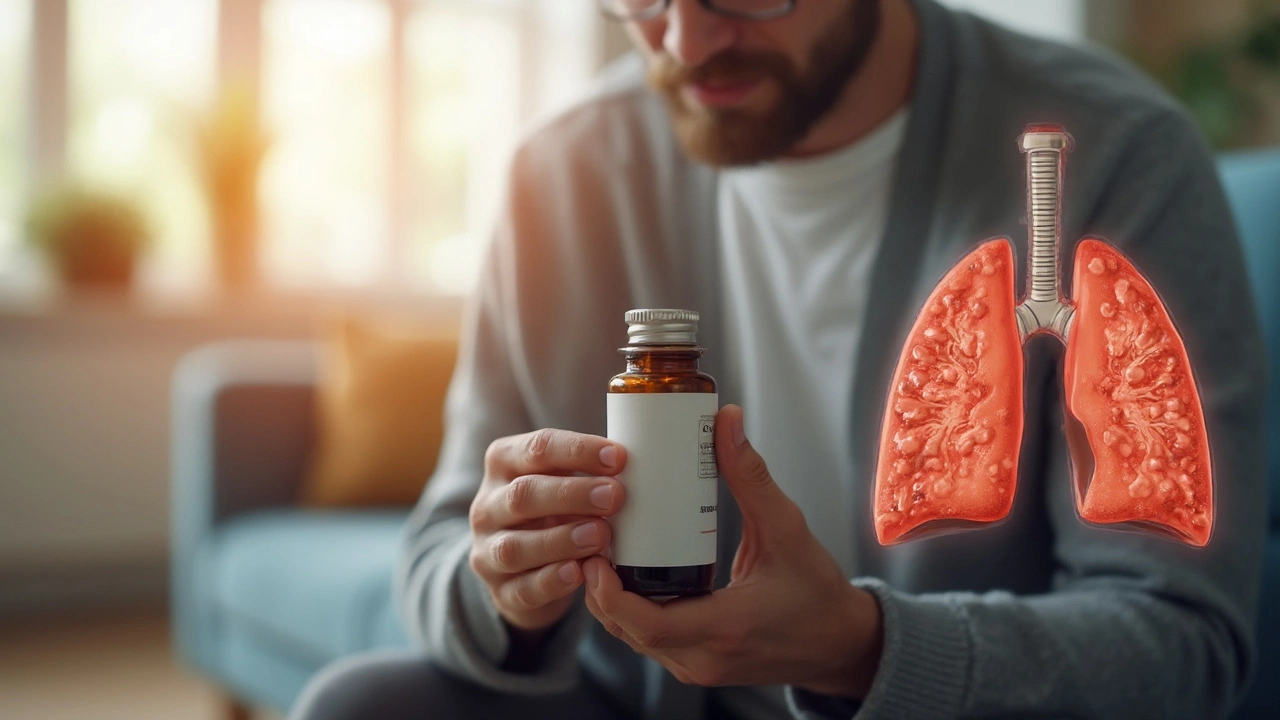Expectorant Guide: Fast Relief for Chest Congestion & Cough
Got a stubborn cough that just won’t quit? An expectorant can thin the mucus so you can cough it out easier. In this guide you’ll see how they work, which products are worth trying, and safety pointers you shouldn’t ignore.
What Is an Expectorant?
Simply put, an expectorant is a medicine that loosens thick sputum in the lungs. It doesn’t stop the cough; it makes the cough useful by helping you clear the airways. Most contain guaifenesin, a compound that draws water into the mucus, making it less sticky. The result is a smoother, more productive cough and less irritation in your throat.
Top Over‑the‑Counter and Natural Options
For most people, the go‑to OTC choice is a guaifenesin product like Mucinex. Take the recommended dose every 4‑6 hours, and drink plenty of water – the liquid is key for the medicine to work. If you prefer something natural, try a warm ginger‑lemon tea or honey‑cinnamon mix. Both have mild expectorant effects and soothe the throat at the same time.
Another easy option is a humidifier or steam inhalation. Breathing warm, moist air opens up the air passages and helps mucus slide out. You can even add a few drops of eucalyptus oil for a pleasant scent and extra clearing power.
When you’re on prescription meds, check if they already contain an expectorant. Some cough syrups combine a suppressant with a thin‑ner so you get balanced relief. Always read the label to avoid doubling up on the same ingredient.
Safety matters. If you have high blood pressure, heart disease, or are pregnant, talk to a pharmacist before starting any expectorant. Side effects are usually mild – like an upset stomach – but they can be worse if you don’t stay hydrated.
Know when to call a doctor. If you develop fever, chest pain, or cough that lasts more than three weeks, you could have an infection that needs antibiotics, not just an expectorant. Same goes for coughing up blood or severe shortness of breath.
Here’s a quick checklist to get the most out of your expectorant:
- Drink at least 8 glasses of water daily.
- Follow the exact dosage on the package.
- Avoid smoking and second‑hand smoke.
- Use a humidifier in dry rooms.
- Seek medical help if symptoms worsen or persist.
With the right approach, an expectorant can turn a nagging cough into a useful tool for clearing your lungs. Keep these tips handy, stay hydrated, and you’ll be breathing easier in no time.
Carbocisteine: The Mucus-Reducing Solution Explained Simply
Get the facts about carbocisteine, a go-to treatment for stubborn mucus and chest congestion. Learn how it works, practical tips, who should use it, and fresh research.
